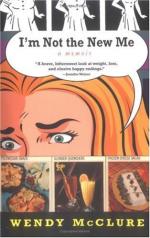In connection with Alexander H. Stephens, with whom he had become a warm friend, Toombs, and Preston, Lincoln formed the first Congressional Taylor Club, known as the “Young Indians.” Campaigning had already begun on the floor of Congress, and the members were daily making speeches for the various candidates. On July 27th Lincoln made a speech for Taylor. It was a boisterous election speech, full of merciless caricaturing, and delivered with inimitable drollery. It kept the House in an uproar, and was reported the country over by the Whig press. The “Baltimore American,” in giving a synopsis of it, called it the “crack speech of the day,” and said of Lincoln: “He is a very able, acute, uncouth, honest, upright man, and a tremendous wag, withal.... Mr. Lincoln’s manner was so good-natured, and his style so peculiar, that he kept the House in a continuous roar of merriment for the last half hour of his speech. He would commence a point in his speech far up one of the aisles, and keep on talking, gesticulating, and walking until he would find himself, at the end of a paragraph, down in the centre of the area in front of the clerk’s desk. He would then go back and take another head, and work down again. And so on, through his capital speech.”
LINCOLN GOES TO NEW ENGLAND.—A NEW SPEECH.
This speech, as well as the respect Lincoln’s work in the House had inspired among the leaders of the party, brought him an invitation to deliver several campaign speeches in New England at the close of Congress, and he went there early in September. There was in New England, at that date, much strong anti-slavery feeling. The Whigs claimed to be “Free Soilers” as well as the party which appropriated that name, and Lincoln, in the first speech he made, defined carefully his position on the slavery question. This was at Worcester, Massachusetts, on September 12th. The Whig State convention had met to nominate a candidate for governor, and the most eminent Whigs of Massachusetts were present. Curiously enough the meeting was presided over by ex-Governor Levi Lincoln, a descendant, like Abraham Lincoln, from the original Samuel of Hingham. There were many brilliant speeches made; but if we are to trust the reports of the day, Lincoln’s was the one which by its logic, its clearness, and its humor, did most for the Whig cause. “Gentlemen inform me,” says one Boston reporter, who came too late for the exercises, “that it was one of the best speeches ever heard in Worcester, and that several Whigs who had gone off on the Free Soil fizzle have come back again to the Whig ranks.”
A report was made and printed in the Boston “Advertiser,” though it has hitherto been entirely overlooked by biographers of Lincoln. A search made for this magazine through the files of the Boston and Worcester papers of the year brought it to light, and we reprint it here for the first time. It gives concisely what Lincoln thought about the slavery question in 1848. The report reads:




